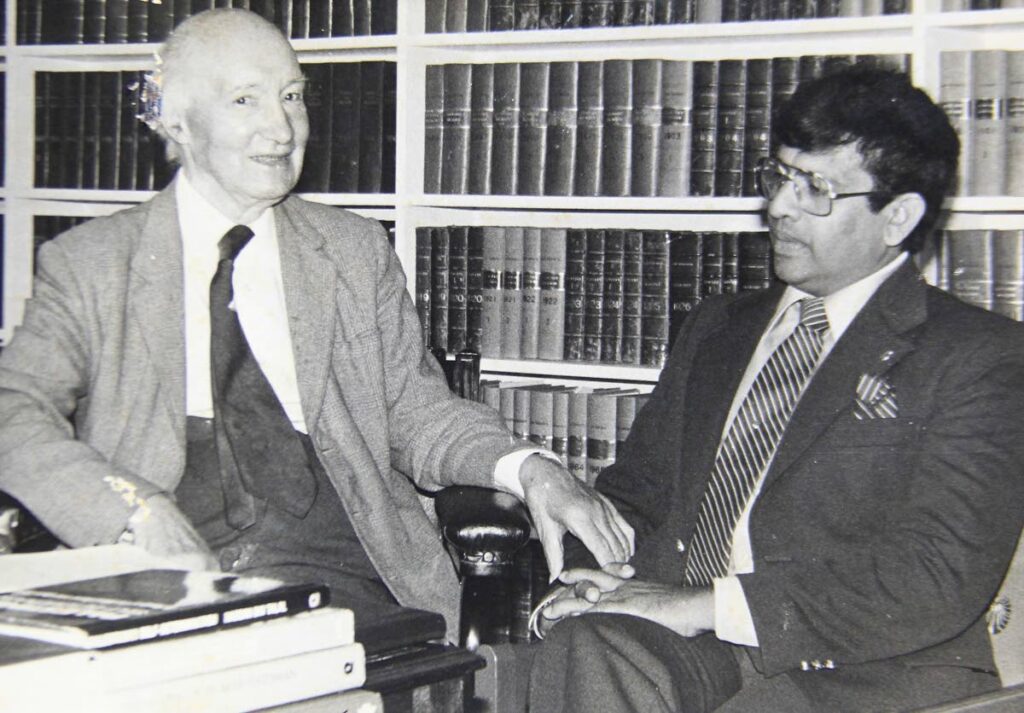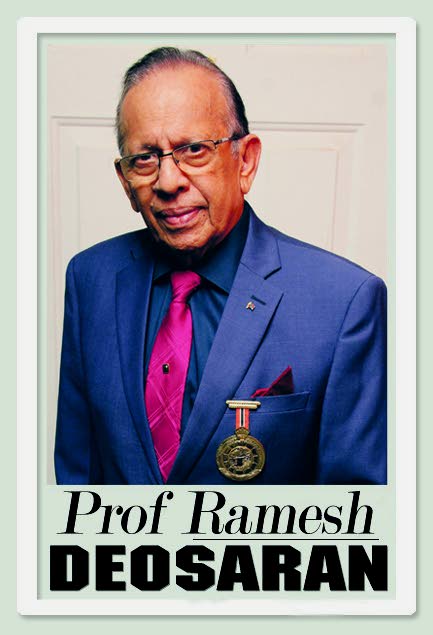Jury, bias and Lord Denning

Trial by jury, like democracy itself, is rich with principles but sometimes poor in practice. Admired by some, demeaned by others, it remains the world’s most enigmatic socio-legal institution. Its purpose and practise fascinate me.
As one of my core research areas, I have visited many foreign institutions, researchers, judges and jury trials – tiring but productive, especially being at Grenada’s controversial Maurice Bishop murder trial. The most intriguing judge was 83-year-old British Lord Denning, Master of the Rolls (Appeal Court) – brilliant, celebrated, controversial. (Died at age 100)
I met him at his country-home library in 1982. He praised the jury system, yet criticised it. The British Council had arranged several jury-research meetings in England for me. Citing several precedents across the Commonwealth, I asked him: “Given the problems you noted, would England ever abolish trial by jury?”
He said: “Almost impossible. I have always been a firm believer in trial by jury. It is such service which gives to ordinary folk their most useful lesson in citizenship. This participation in justice, I believe, has done more than anything else to establish the English habit of obedience to law.” I included Lord Denning remark in my 325-page book, Trial by Jury: Social and Psychological Dynamics, because he represented much of the love-hate voices surrounding trial by jury. He was once voted the “most outstanding judge” in England for his robust judgments and fearless dissents. His intriguing lifestyle included a small factory producing silk ties, handkerchiefs, scarves, etc. I still have my gifted ‘kerchief.
He presented me with his book, What’s New in Law, containing several chapters regarding jury reforms, judge with lay assessors, peremptory challenges, etc. He criticised jury social composition, especially in trials involving ethnic conflict.

This 1982-book by Lord Denning raised a racial raucous in England, leading to a libel action threat against him by two black jurors. After the racially-driven “Bristol riots” in England, Lord Denning complained about the jury “packed” with “coloured people,” which in his view, led to the acquittal of the “two black ring leaders.”
Around that time, England had produced a large number of research papers on the jury system and established several university-related institutions. In fact, I spent some useful time at Oxford Centre for Socio-Legal Studies where "the psychology of the court room” was a speciality.
The Canada Law Reform Commission, after a series of public and professional consultations, produced its 340-page bi-lingual report – The Jury in Criminal Trials. The US produce countless jury research papers and books. During my visit to Nevada’s National College of the Judiciary, I saw judges from across the country being trained in handling jury trials. All this suggest that making jury polices, especially when politically-driven, should be properly supported by reliable evidence.
With permission from then Chief Justice Sir Isaac Hyatali, my difficult research on 390 jury trials and 2,502 jurors showed jury social class and racial distribution. (East Indians 25 per cent, Non- East Indians 75 per cent; East Indian women were the lowest four per cent. social class: upper 1.5 per cent, middle 74 per cent, lower 25 per cent. Jury foremen were significantly imbalanced by sex, race and class. Jurors randomly selected from an eligible electoral list of 4,982. Jury books inspected).
Briefly, as detailed in my Trial by Jury book, of the 617 accused who faced a jury, 37 per cent were found guilty, 22 per cent not guilty with 41 per cent trial pending. In the survey of 127 lawyers, only four called for abolishment. The rest proposed reform.
This book also contains chapters on jury history, pretrial publicity, jury issues in seven Caricom countries, jurors’ reasons for verdicts and the courtroom conditions which attract juror prejudice.
Lord Denning warned: Careful not to throw out the baby with the bathwater. I referenced him to illustrate that while trial by jury does have problems, it cannot be blamed for all the inefficiencies of the judiciary. If "inefficiency" is a cause for jury reform what about the appeals from judges’ decisions on the law? For the last 20 years, Privy Council judgments show around 50 per cent rejection of lower court decisions.
Any system which depends on men for its objectives could be, if not inevitably, corrupted by the weaknesses of the men who occupy such system. The challenges for the jury system, like democracy itself, is how to provide checks and balances to serve its true purpose.


Comments
"Jury, bias and Lord Denning"